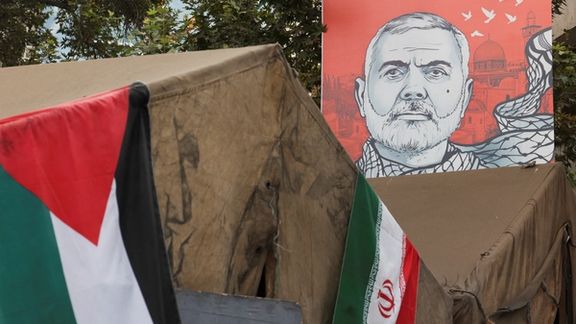Iran signals caution amid uncertain Gaza truce talks

Iran's UN mission has subtly indicated that Tehran's response to the Hamas leader's assassination would be delivered with "maximum surprise," maintaining a shroud of ambiguity.

Iran's UN mission has subtly indicated that Tehran's response to the Hamas leader's assassination would be delivered with "maximum surprise," maintaining a shroud of ambiguity.
“The timing, conditions, and manner of Iran’s response will be meticulously orchestrated to ensure that it occurs at a moment of maximum surprise; perhaps when their eyes are fixed on the skies and their radar screens, they will be taken by surprise from the ground—or perhaps even by a combination of both,” the mission said in a statement to Wall Street Journal.
The message, which was widely covered by Iranian domestic media, underscored that Tehran’s response must achieve two primary objectives: to both punish Israel and deter future attacks. However, it also stressed that this response "must be carefully calibrated to avoid any possible adverse impact that could potentially influence a prospective ceasefire."
While US officials have suggested that a Gaza ceasefire might avert Iranian retaliation for the July assassination of Hamas leader Ismail Haniyeh in Tehran, Iranian authorities have dismissed this but reiterated that they would not jeopardize the ceasefire. This is while, despite US efforts, a resolution between Israel and Hamas remains uncertain, with the latest ceasefire talks expected to persist this week.
"We are not looking to intensify insecurity in the region. We support efforts with good intentions regarding the ceasefire. Meanwhile, we insist on Iran's legal right to realize its rights, punish the aggressor, and create deterrence against a terrorist regime. We will use it at the appropriate time," said Foreign Ministry spokesman Nasser Kanaani on Monday.
The Islamic Republic signals a commitment to its threats of retaliation while simultaneously expressing a cautious intent to avoid exacerbating the regional crisis. This posture suggests an effort to navigate the delicate balance of maintaining influence, particularly among regional proxies, without fully committing to direct conflict with Israel and the US, given the underlying economic pressures.
Echoing this cautious tone, Mohsen Rezaee, former IRGC commander-in-chief, told CNN on Tuesday, "We have investigated the possible repercussions. And we will not let Netanyahu, sinking in a swamp, save himself. The Iranian actions will be very calculated."
Similarly, Ali-Mohammad Naini, the IRGC spokesperson, noted, "Time is on our side, and the waiting period for this response may be prolonged," indicating a strategic shift from Tehran’s earlier threats of immediate and severe retaliation.